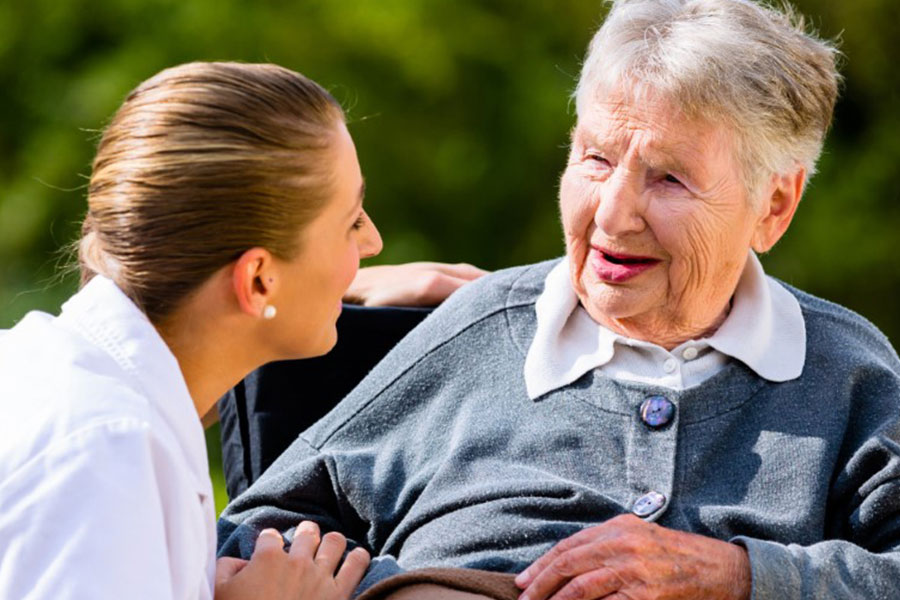The thought of having problems breathing is a big cause of anxiety so it is important to say that it can be helped. Respiratory muscle weakness affects most people with MND. Attendance at the MND specialist clinic ensures regular monitoring and allows breathing muscle weakness to be identified early. As the muscles weaken, less air is drawn into the lungs. This may reduce the amount of oxygen that can be absorbed into the blood. The person may have difficulty exhaling, which then leads to the retention of carbon dioxide (hypercapnia). In this situation, the use of oxygen can lead to further respiratory depression. Oxygen should be used with caution and only following the advice of the specialist MND team. Sleeping tablets are not recommended as they may weaken the respiratory muscles further making the symptoms worse. Breathlessness can be very distressing but there are interventions that may reduce the symptoms and make the person more comfortable.
The symptoms caused by respiratory weakness may include: disturbed sleep, nightmares, fatigue, headaches, daytime sleepiness, poor concentration, voice becoming faint, weak cough, hallucinations, confusion, difficulty breathing when lying flat and feeling breathless on exertion or even while resting.
A weak cough will make it difficult to clear the throat, to cough up phlegm and mucus which may increase the risk of chest infections. Humidification and nebulisers should be considered to help loosen the secretions. Antibiotics may be necessary if there is an infection and if required muscle relaxants may be helpful in relaxing the muscles and reducing the feelings of breathlessness.
The specialist physiotherapist can advise on breathing exercises to ensure that the posture is such that it allows for as much expansion of the chest as possible.
The physiotherapist may recommend using Breath Stacking, a Lung Volume Recruitment bag or a Cough Assist, these devices support the ability of the inspiratory and expiratory muscles which may improve a person’s cough and aid secretion clearance. Please click on the button below for more information and video explanation from Cork University Hospital (CUH).




Non-invasive ventilation (NIV) or Non-invasive positive pressure ventilation (NIPPV) refers to a method of providing breathing support to a person by fitting a mask specifically selected to fit your face. The mask will cover the nose and mouth and is connected to a machine that helps support the breathing muscles. NIV has been shown to improve symptoms caused by respiratory weakness, increase quality of life and prolong survival, particularly in people who are compliant in using NIV for over five hours at night during sleep. Some people may have difficulty using NIV, if they have bulbar symptoms, are unable to put on and off the mask independently and they have cognitive impairment.
Understandably, experiencing breathlessness, struggling to cough and choking on secretions and phlegm can be very frightening and may cause increased anxiety. Anxiety further affects the breathing and makes the airways tighter increasing the workload of the respiratory muscles. Anti- anxiety medication can be prescribed to reduce the feelings of anxiety and breathlessness associated with respiratory weakness. Morphine can be very helpful, relieving breathlessness and allowing greater activity.
For more information on this or to discuss any distressing symptoms that you may have, it might be a good idea to link in with our MND nurses.
To arrange a call or a home visit, please speak with our services team on Freephone 1800403403 or email services@imnda.ie



